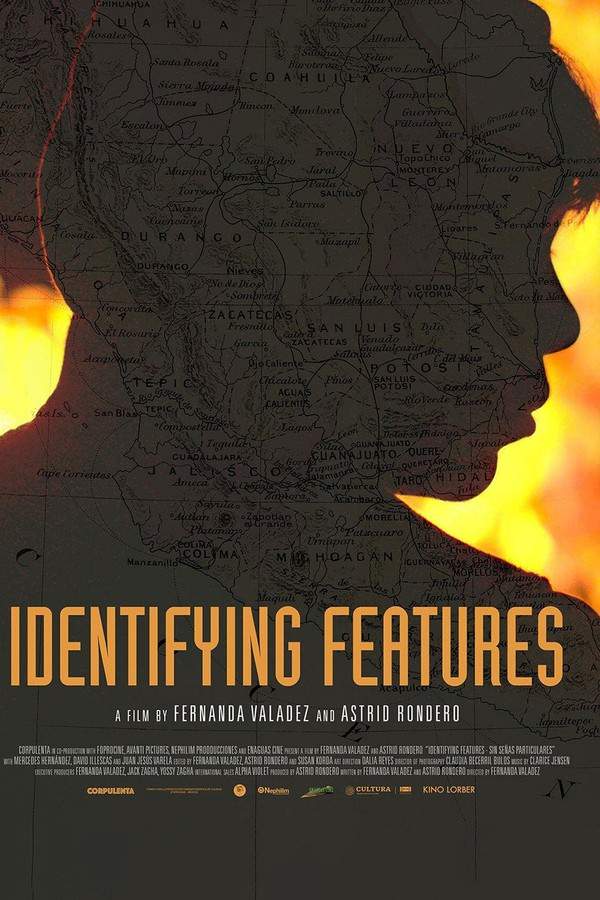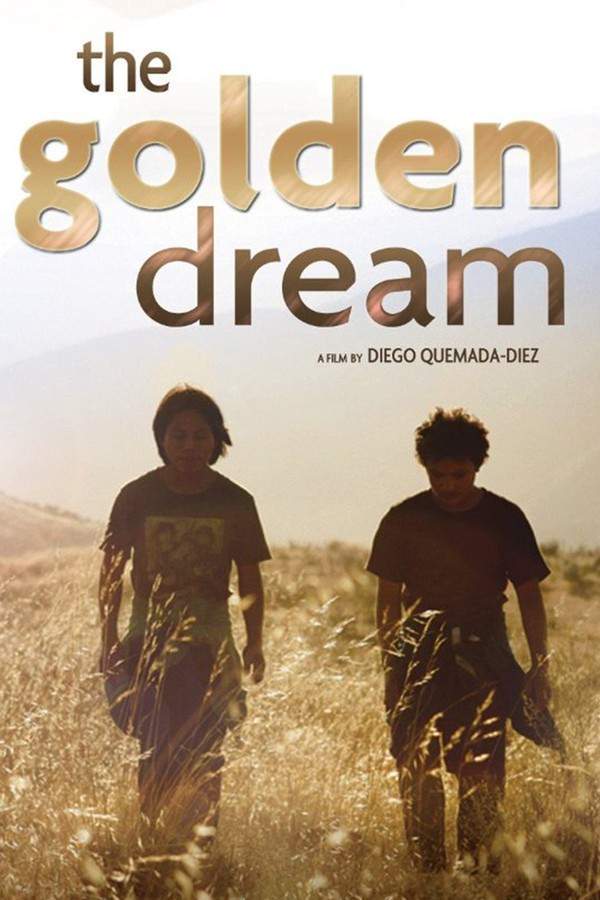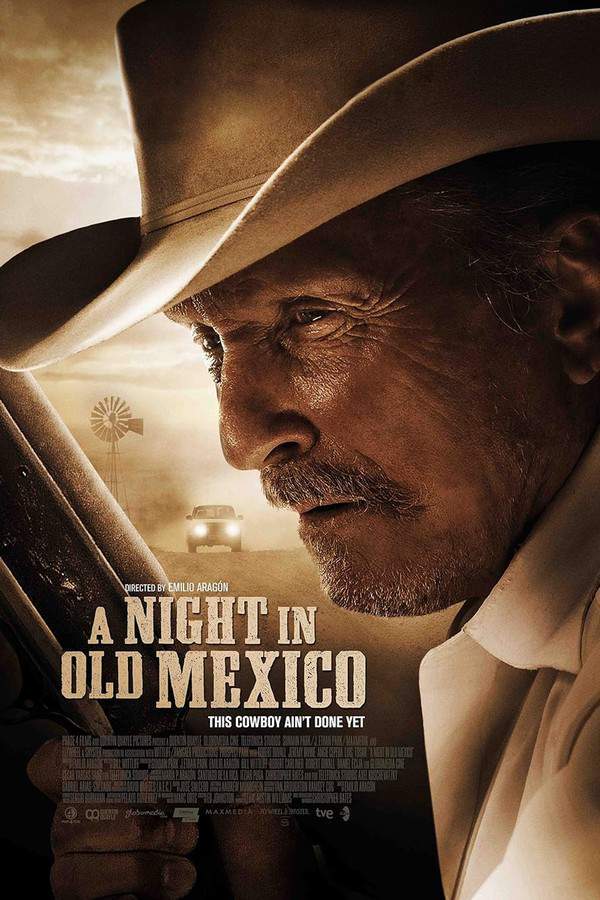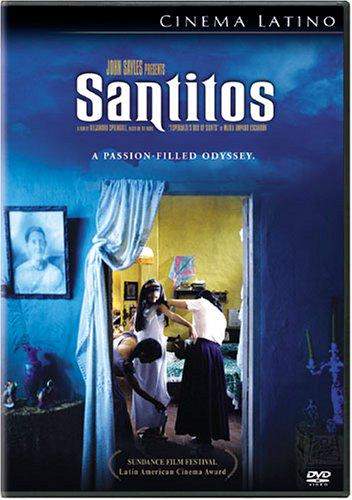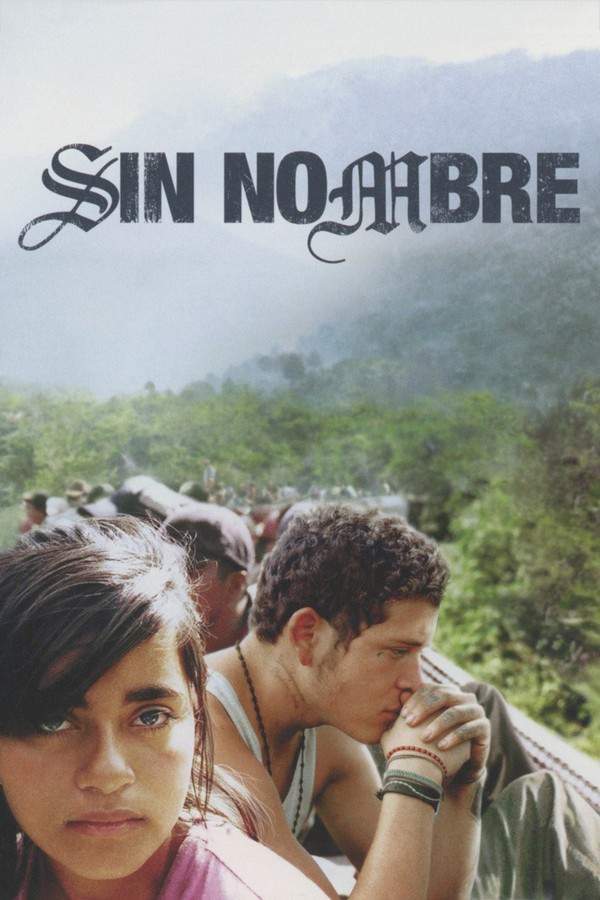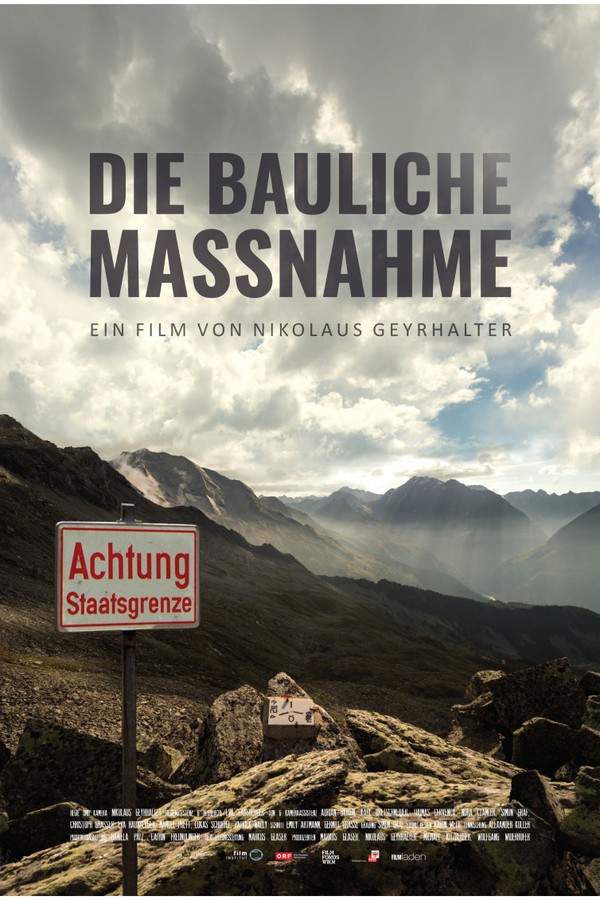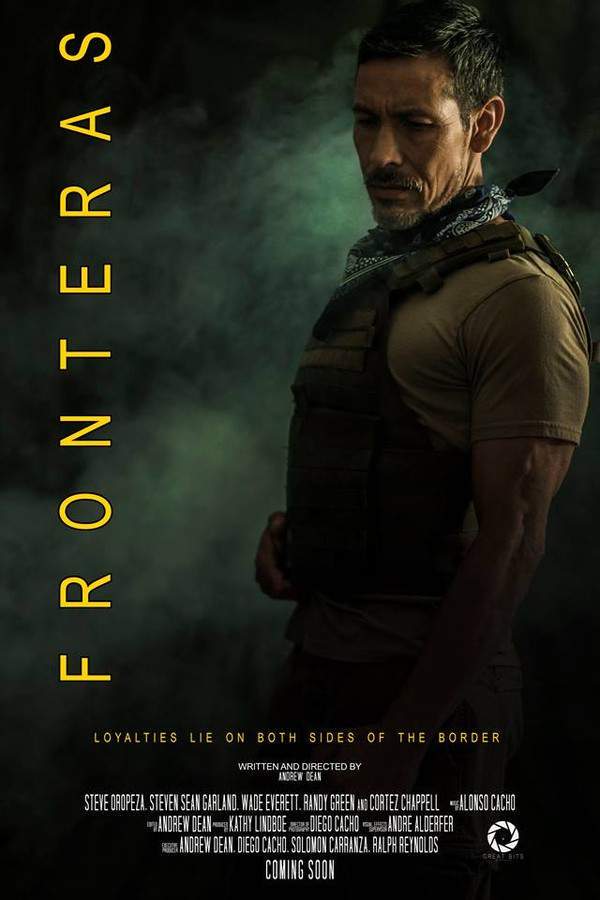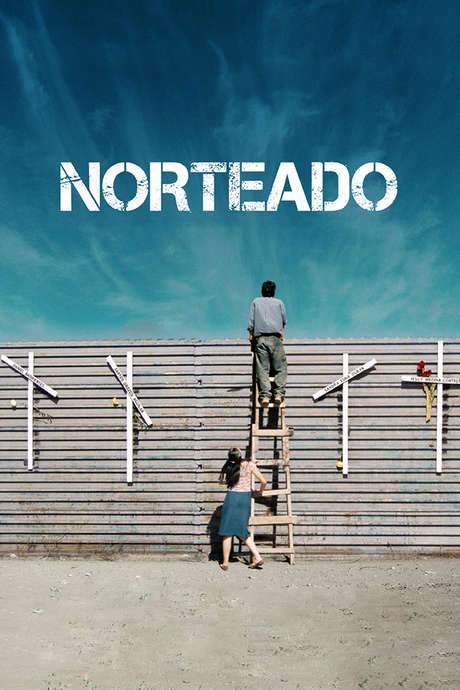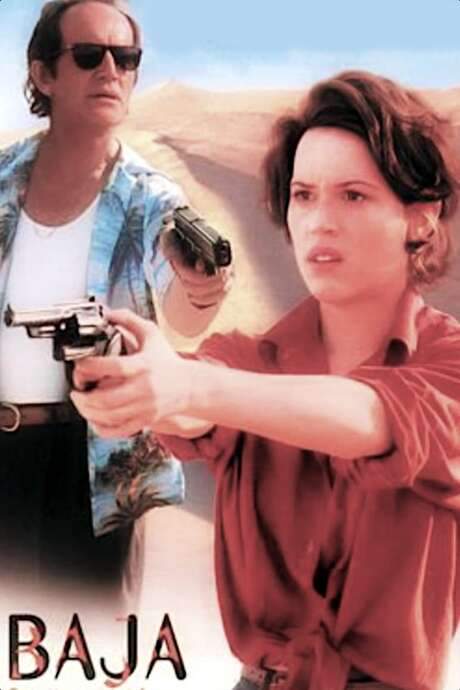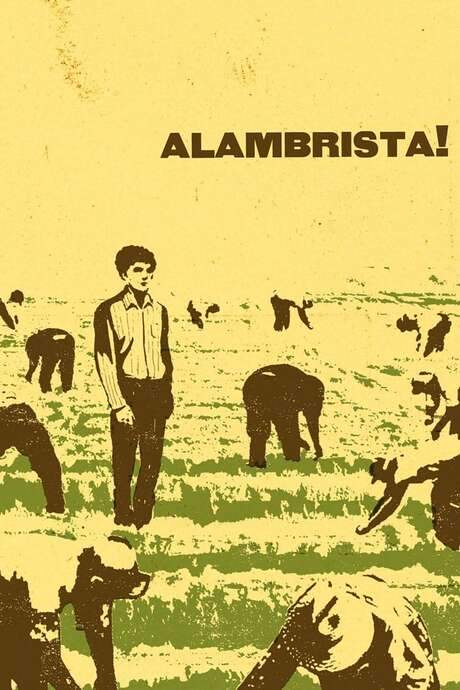El Norte 1984
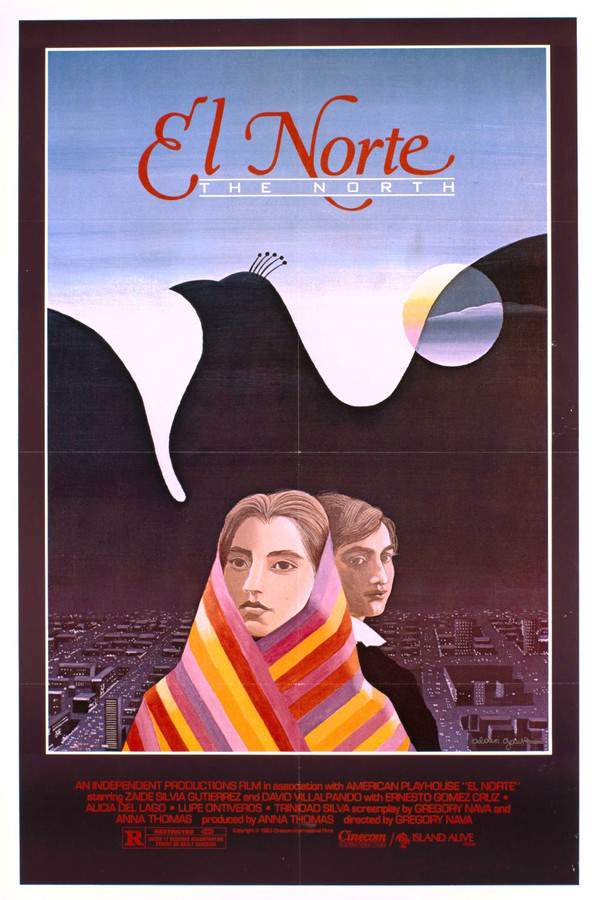
Rosa and Enrique, teenage siblings, are forced to flee their Guatemalan village after it's torn apart by violence and military oppression. They undertake a dangerous journey north, hoping to reach the United States and build a new life. Along the way, they meet a varied group of people and face numerous hardships while striving to reach Los Angeles and confront the realities of undocumented immigration.
Does El Norte have end credit scenes?
No!
El Norte does not have end credit scenes. You can leave when the credits roll.
Meet the Full Cast and Actors of El Norte
Explore the complete cast of El Norte, including both lead and supporting actors. Learn who plays each character, discover their past roles and achievements, and find out what makes this ensemble cast stand out in the world of film and television.
External Links and Streaming Options
Discover where to watch El Norte online, including streaming platforms, rental options, and official sources. Compare reviews, ratings, and in-depth movie information across sites like IMDb, TMDb, Wikipedia or Rotten Tomatoes.
Ratings and Reviews for El Norte
See how El Norte is rated across major platforms like IMDb, Metacritic, and TMDb. Compare audience scores and critic reviews to understand where El Norte stands among top-rated movies in its genre.

75
Metascore
7.5
User Score


92%
TOMATOMETER

82%
User Score

7.7 /10
IMDb Rating
Take the Ultimate El Norte Movie Quiz
Challenge your knowledge of El Norte with this fun and interactive movie quiz. Test yourself on key plot points, iconic characters, hidden details, and memorable moments to see how well you really know the film.
El Norte Quiz: Test your knowledge about the poignant story of Enrique and Rosa's journey in 'El Norte'.
What profession does Arturo hold in Guatemala?
Coffee picker
Farmer
Teacher
Blacksmith
Show hint
Awards & Nominations for El Norte
Discover all the awards and nominations received by El Norte, from Oscars to film festival honors. Learn how El Norte and its cast and crew have been recognized by critics and the industry alike.
The 57th Academy Awards 1985
Writing (Screenplay Written Directly for the Screen)
Full Plot Summary and Ending Explained for El Norte
Read the complete plot summary of El Norte, including all major events, twists, and the full ending explained in detail. Explore key characters, themes, hidden meanings, and everything you need to understand the story from beginning to end.
Part 1: Arturo Xuncax
Set in the tranquil San Pedro, a small rural village in Guatemala, we are introduced to the Xuncax family, comprised of resilient indigenous Mayans. Arturo, a diligent coffee picker, shares his insights with his son, Enrique, on the harsh realities faced by their community, revealing that, “to the rich, the peasant is just a pair of strong arms.” The family contemplates a future in the United States, where they believe that “all the people, even the poor, own their own cars.” However, Arturo’s ambition to advocate for workers’ rights leads to tragedy; he, along with his fellow activists, is betrayed by a co-worker and subsequently murdered by government soldiers. The harrowing sight of Arturo’s severed head hanging from a tree leaves a chilling impact. When Enrique bravely attempts to reach his father’s body, a soldier suddenly attacks him, but in a twist of fate, Enrique fights back and kills the assailant. Soon after, they find out that many villagers have been seized by soldiers, and to their dismay, their mother also “disappears.” With money gifted to them by their godmother, Enrique and his sister Rosa make the perilous decision to flee their homeland.
Part 2: Coyote
The narrative transitions to the siblings’ escape as they venture through Mexico, meeting a Mexican coyote who promises to help them cross the border. This section is peppered with comedic interludes, showcasing the awkward attempts of Enrique and Rosa as they try to blend in as indigenous Mexicans. Their first crossing attempt fails miserably when they mislead a truck driver with their incorrect destination. A deceptive coyote tries to rob them, but they manage to succeed in persuading a U.S. Border Patrol officer during their second crossing attempt. The humor turns grim when they experience the horrors of traversing through a rat-infested sewer.
Part 3: El Norte
In the concluding part of the film, Rosa and Enrique face the stark challenges of living in the U.S. undocumented. Their initial excitement is short-lived as they settle in Los Angeles after spending a night in a rundown motel. The siblings find jobs, but their struggles soon deepen when Rosa narrowly escapes an immigration raid. As she takes a job as a domestic worker, she becomes bewildered by her employer’s washing machine. Meanwhile, Enrique starts working as a busboy, and as he sharpens his English skills, he earns a promotion to a waiter’s assistant. When a wealthy businesswoman offers him a better opportunity in Chicago, he hesitates, not wanting to abandon his sister. However, envy from a co-worker leads to an immigration report against him, pushing him back towards the businesswoman.
As Enrique grapples with the weight of his decisions, Rosa falls gravely ill from typhus after their treacherous journey. Faced with the choice of pursuing his career in Chicago or remaining with Rosa, he chooses the latter. Her poignant words leave a lasting impression: “In our own land, we have no home. They want to kill us. In Mexico, there is only poverty. We can’t make a home there either. And here in the north, we aren’t accepted. When will we find a home, Enrique? Maybe when we die, we’ll find a home.” After Rosa peacefully passes away, Enrique finds himself back at square one, waiting for work, embodying the truth of his father’s words: the poor remain just “strong arms” for the affluent. The film closes on a haunting note, mirroring its beginnings with a severed head, a stark reminder of the cycle of violence and exploitation.
Uncover the Details: Timeline, Characters, Themes, and Beyond!

Coming soon on iOS and Android
The Plot Explained Mobile App
From blockbusters to hidden gems — dive into movie stories anytime, anywhere. Save your favorites, discover plots faster, and never miss a twist again.
Sign up to be the first to know when we launch. Your email stays private — always.
Watch Trailers, Clips & Behind-the-Scenes for El Norte
Watch official trailers, exclusive clips, cast interviews, and behind-the-scenes footage from El Norte. Dive deeper into the making of the film, its standout moments, and key production insights.
El Norte Themes and Keywords
Discover the central themes, ideas, and keywords that define the movie’s story, tone, and message. Analyze the film’s deeper meanings, genre influences, and recurring concepts.
El Norte Other Names and Titles
Explore the various alternative titles, translations, and other names used for El Norte across different regions and languages. Understand how the film is marketed and recognized worldwide.
Similar Movies To El Norte You Should Know About
Browse a curated list of movies similar in genre, tone, characters, or story structure. Discover new titles like the one you're watching, perfect for fans of related plots, vibes, or cinematic styles.
Quick Links: Summary, Cast, Ratings, More

What's After the Movie?
Not sure whether to stay after the credits? Find out!
Explore Our Movie Platform
New Movie Releases (2025)
Famous Movie Actors
Top Film Production Studios
Movie Plot Summaries & Endings
Major Movie Awards & Winners
Best Concert Films & Music Documentaries
Movie Collections and Curated Lists
© 2025 What's After the Movie. All rights reserved.













